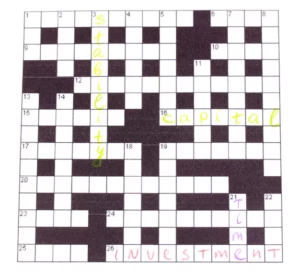Sometimes the New York Times isn’t just reporting the news—it’s documenting emotion.
When it speaks the names fiona apple and tracy chapman nyt, it doesn’t just nod to artists.
It salutes truth-tellers, soul-bearers, storm-singers.
These two aren’t pop stars. They’re poets who found rhythm in pain.
They don’t sing to entertain. They sing to exhale.
🔥 Who Is fiona apple and tracy chapman nyt?
She was just seventeen when she broke the world open with “Tidal.”
A voice like a fractured angel. Lyrics like love letters torn in rage.
🖤 A Girl with a Piano and a Firestorm Inside
Fiona Apple doesn’t sing songs.
She bleeds them.
Every note trembles with trauma, every verse with vulnerability.
🌌 Who Is Tracy Chapman?
Her voice is a quiet revolution. No theatrics. No glitz. Just a guitar, a gaze, and truth spoken like a hymn.
🚗 “Fast Car” and the Highway of Quiet Rebellion
“Fast Car” wasn’t just a hit. It was an escape plan.
Tracy gave women—especially Black women—a voice that wasn’t shouted, but stood firm.
📰 Why the NYT Connects These Two Titans
Both have been etched into puzzles, celebrated in profiles, and woven into the cultural conversation.
They write about real things.
Loneliness. Systemic injustice. Brokenness.
Things that matter more than fame.
🔇 The Power of Silence and Sound
Fiona’s whisper can shake you more than screams.
Tracy’s restraint is her roar.
When these women sing, it feels like the room holds its breath.
✂️ Lyrics That Cut Like Glass
🥀 Fiona’s Confessionals – Pain Without Punctuation
She doesn’t rhyme for rhythm.
She rhymes because her soul needs to make sense of the storm.
✊🏽 Tracy’s Protest Ballads – Softly Screamed Truths
“Talkin’ ’bout a Revolution” wasn’t loud.
It was low, calm, dangerous—like a fire quietly burning under your feet.
💊 Music as Medicine, as Mirror
Their albums aren’t just playlists.
They’re healing spells.
When the world silences women, Apple and Chapman turn the volume up on vulnerability.
🧾 NYT’s Recognition of Female Storytelling
The New York Times, through both puzzle and prose, has always had a soft corner for voices that pierce without permission.
Whether it’s a front-page album review or a crossword clue tucked between “zen” and “grief,” their names linger like perfume in print.
📈 Tracy Chapman’s Cultural Renaissance
After years in quiet retreat, Tracy was rediscovered when Luke Combs covered “Fast Car.”
NYT headlines celebrated this full-circle moment:
A Black queer woman’s words, now echoing through country radio.
🔓 Fiona Apple’s Raw Return
In 2020, she released “Fetch the Bolt Cutters”—not an album, but a cry of release.
The NYT called it a masterpiece.
And rightly so. It was imperfect, unfiltered, divine.
💢 The Role of Feminine Anger in Their Work
Where others saw hysteria, they channeled truth.
Anger wasn’t their weakness. It was their compass.
They turned fury into feminine gospel.
🌫️ Minimalism, Maximal Emotion
A guitar. A piano. A breath.
No excess. Just essence.
Tracy could sing one note and break your ribs.
fiona apple and tracy chapman nyt could hit the keys like she was begging them to understand her.
💬 Fan Connection – Music That Feels Like a Diary
Their music doesn’t perform.
It relates.
For every broken teenager. Every silenced survivor. Every hopeful heart.
They are not just singers—they are sanctuaries.

👩🎤 Influence on Generations of Artists
From Phoebe Bridgers to Billie Eilish, you can hear the echoes.
Their ghosts live in the vocal cracks, in the trembling truths, in the lines no one else dares to write.
🧩 When Their Paths Cross in a Puzzle or Paragraph
Imagine solving a crossword and finding “Tracy” or “Fiona” as your answer.
Suddenly, a game becomes a poem.
Their names, even as clues, carry weight, ache, and artistry.
🌅 Conclusion – The Song That Never Ends
They are not pop culture. They are pillars of emotion.
The New York Times, in its reverent acknowledgment, reminds us:
That not all revolutions are loud.
Some are sung in quiet rooms with trembling hands.
Fiona Apple and Tracy Chapman taught us how to scream without sound.
How to write love songs with scars.
And how to live truthfully—even when the world isn’t ready.
Their song hasn’t ended.
It’s still humming in headphones, crossword puzzles, and aching hearts.
❓ FAQs
Q1: Why are Fiona Apple and Tracy Chapman often mentioned together?
A: Because both are introspective, emotionally raw artists whose music transcends genre, time, and tradition. They are linked by their authenticity and cultural impact.
Q2: What makes their music emotionally powerful?
A: Their lyrics are deeply personal, their performances vulnerable, and their messages timeless. They don’t just sing—they bare their souls.
Q3: How has NYT covered their careers?
A: Through glowing album reviews, feature profiles, and even crossword clues, the NYT has long honored their contributions to music and culture.
Q4: What themes do both artists explore in their songs?
A: Loneliness, injustice, heartbreak, hope, resilience, and the female experience—delivered with poetic honesty.
Q5: Are there any crossword clues featuring these artists?
A: Yes. Clues like “Singer of ‘Fast Car’” or “Fiona with the album ‘Tidal’” have appeared, reflecting their iconic status and enduring relevance.








